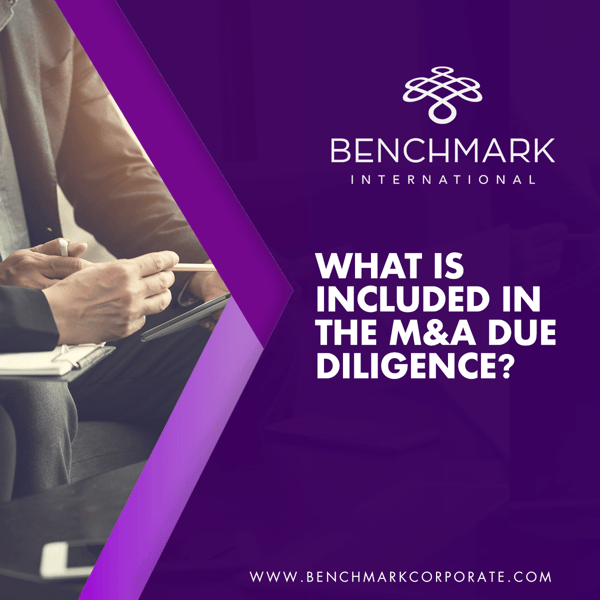
The due diligence process is one of the final steps in an M&A transaction where the potential buyer does its obligation to best confirm and verify the seller's company data and relevant information. This information typically includes but not limited to: financials, IT, operations, legal & compliance, insurance, corporate bylaws, contracts, customers, among other important information. Typically, the due diligence process follows the execution of a letter of intent (LOI), a non-binding document outlining the intent of both parties to commit to the transaction.
Once the LOI has been executed, the buyer will request a list of items to be shared by the seller with the intention of disclosing the selling company’s key details that could uncover risk buyer. As mentioned before, items can range all the way from financials to operations to insurance to contracts, among others. In cases where the seller owns the real estate, additional documents pertaining to the real estate, such as: deeds, mortgages, tax documents, owners’ insurance, etc. will need to be provided. Given today’s advancements in technology, once the due diligence request list has been sent to the seller, the team leading the deal will proceed to open what we call in the M&A world a “virtual data room” or a “data room.” These two terms are referred to as online portals that hold and store the information requested by the buyer with high levels of security only available for certain parties, including: buyer, seller, M&A attorneys, CPAs, advisors, among others. The data room allows activity within the room to be tracked and archived so there is a file of the information exchange after closing should any issues arise.
Once the due diligence starts, it is highly recommended for the buyer to hold, at the very least, weekly meetings or calls with the seller to discuss outstanding items or any questions that may have arisen from the process. As the due diligence process progresses, the buyer will become more familiar with the seller’s company. For an instance, should the buyer find any items that may play against the seller in the due diligence process, the buyer may use this to lower the valuation of the business which may ultimately result in a lower offer price.
In addition, this process can result as a discovery of potential opportunity to better structure the deal, find real synergies among parties, review any benefits and challenges for potential system integrations, and any associated risks that may arise from the result of this potential acquisition.
Author:
Andres Ventura
Senior Analyst
Benchmark International
WE ARE READY WHEN YOU ARE.
Call Benchmark International today if you are interested in an exit or growth strategy or if you are interested in acquiring.
Americas: Sam Smoot at +1 (813) 898 2350 / Smoot@BenchmarkCorporate.com
Europe: Carl Settle at +44 (0)161 359 4400 / Settle@BenchmarkCorporate.com
Africa: Anthony McCardle at +2721 300 2055 / McCardle@BenchmarkCorporate.com
ABOUT BENCHMARK INTERNATIONAL
Benchmark International’s global offices provide business owners in the middle market and lower middle market with creative, value-maximizing solutions for growing and exiting their businesses. To date, Benchmark International has handled engagements in excess of $5B across 30 industries worldwide. With decades of global M&A experience, Benchmark International’s deal teams, working from 13 offices across the world, have assisted hundreds of owners with achieving their personal objectives and ensuring the continued growth of their businesses.
Website: http://www.benchmarkcorporate.com
Blog: http://blog.benchmarkcorporate.com/

 Benchmark International
Benchmark International  Benchmark International
Benchmark International 




